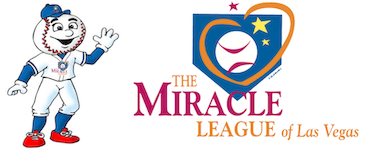
People with disabilities are a diverse and vibrant community, making up nearly one-fifth of the US population. Yet, they face unique struggles when it comes to accessing postsecondary education.
People with disabilities of all kinds tend to attend and graduate college at far lower rates than people who do not have disabilities. According to a 2015 report from the Bureau of Labor Statistics, only 16.4 percent of people with disabilities over the age of 25 had completed a bachelor’s degree compared with 34.6 percent of their non-disabled peers.
And, of those who had completed a bachelor’s degree, only 26.1 percent were employed compared with 75.9 percent of their non-disabled peers. One distressing result of this trend is that 48 percent of people with disabilities are living on an income of $15,000 per year or less.
One of the reasons for this disparity is a lack of affordable, adequate resources that folks with disabilities need to succeed after high school. When you add the hefty price tags of medical care and assistive technologies to the soaring costs of college tuition, the financial burden of attending college as a person with disabilities can seem nearly insurmountable.
In this guide, we’re going to point you towards some useful resources for people with disabilities, including physical, intellectual, and learning disabilities, to help you get access to a great college education and save some money along the way. Here’s what you’ll get in this guide:
- 5 of our best tips for accessing college education as a person with disabilities.
- A list of government resources for your education
- Tips on scholarships, top schools for people with disabilities, discounts on assistive technology, and more!
College Planning Guides
Guide to College Planning for Students with Disabilities – https://www.bestcolleges.com/resources/students-with-disabilities/
We also provide planning that focuses on specific disabilities:
Guide to College Planning for Students with Physically Disabilities – https://www.bestcolleges.com/resources/college-planning-with-physical-disabilities/
Guide to College Planning for Students with Visually Disabilities – https://www.bestcolleges.com/resources/college-planning-with-visual-impairments/
Guide to College Planning for Students with Psychiatrically Disabilities – https://www.bestcolleges.com/resources/college-planning-with-psychiatric-disabilities/
Guide to College Planning for Students with Hearing Disabilities – https://www.bestcolleges.com/resources/college-planning-for-deaf-and-hard-of-hearing-students/
Guide to College Planning for Students with Learning Disabilities – https://www.bestcolleges.com/resources/college-planning-with-learning-disabilities/
Tips for disabled folks pursuing a college education
Know your rights
The disability rights movement has made tremendous strides over the last several decades to ensure fair and just treatment for folks with disabilities. Check out the Americans with Disabilities Act website so you’re prepared in the event that your rights are being violated.
Use on-campus disability resources
Find the office for students with disabilities on your campus or at schools you’re interested in. Most colleges and universities have an office for students with disabilities that connects folks with the resources that are available on campus. Schedule an appointment with them to review your options.
Shop around for schools
We’ve got a few useful lists a little later on in this article, but it’s crucial to do your research. Some schools are more committed to the success of their students with disabilities, so it’s important that you look out for which schools have the highest success rates for people with disabilities. A few schools are even completely dedicated to educating students with disabilities!
Find an advocate
Sometimes speaking up for your own needs can be challenging, especially when you’re already facing the stresses of college life. Find a point person on campus or even a friend who can help you advocate for yourself so you can get your needs attended to.
Check out advocacy organizations associated with your specific disability
Many of these organizations can offer you more specific information about your rights, link you with resources that you need, and some even offer scholarships and grants to help you with the costs of schooling. This guide deals with disability broadly, so it would definitely be useful to check these organizations out for more tailored information.
Government resources for college students with disabilities
There are a number of resources and benefits funded by the federal government as well as state and local governments that can help you transition to a postsecondary education and succeed when you get there.
In addition, anti-discrimination laws are on the books to ensure that your campus is accessible and that you have the resources you need to perform at your best. These are the government resources are here to assist you.
Medical tax deduction
Under IRS publication 502, students with disabilities who require special education may be able to deduct the cost of college tuition, meals, and lodging if they attend a school that is specifically equipped to assist students with learning disabilities.
In order to qualify for the deduction, a doctor must recommend that the student attends a school that offers particular services for students with learning disabilities and the primary objective of their education should be helping them to overcome their learning disabilities.
Individuals With Disabilities Education Act (IDEA)
The Individuals With Disabilities Education Act, which was passed in 2004, mainly pertains to students up to age 21 who are pursuing elementary and secondary school education. However, it does require that services are provided which can help students with disabilities transition to life after high school, including transitioning to postsecondary education.
The act requires that these transition services are offered before the student turns 16 and that schools offer individualized programs tailored to each student’s specific needs.
Students with Disabilities Preparing for Postsecondary Education Pamphlet
This document was developed by the US Department of Education’s Office for Civil Rights. The pamphlet is intended to inform students with disabilities of their rights and responsibilities when pursuing postsecondary education and offers useful information on how to address cases of discrimination, how to request academic adjustments, and what your rights are as a student with disabilities.
Transition and Postsecondary Programs for Students with Intellectual Disabilities (TPSID)
In 2015, the US Department of Education offered grants to 25 institutions to help them create or expand model programs at colleges and universities that offer services to help students with intellectual disabilities transition to a college education or receive credits for postsecondary education.
Many of these programs are offered at reduced rates, provide individual support for students, and offer meaningful credentials for students upon finishing the program. You can find a list of colleges and universities that offer these programs here.
Americans with Disabilities Act (ADA) and Section 504
Under Title II of the ADA and Section 504 of the Rehabilitation Act, any college or university that receives federal financial assistance, which is all public and most private institutions, may not discriminate against students with disabilities. They must require reasonable accommodations so that students with disabilities can have access to the same services, extracurricular activities, housing, and more that their non-disabled peers enjoy.
Schools must also provide quality auxiliary aids such as notetakers, interpreters, assisted listening devices, captioning, specialized gym equipment, and other tools to assist students with disabilities.
Assistive Technology Act of 1998
This act grants federal assistance to states to help them implement programs that provide assistive technology to people with disabilities. The main purpose of these programs is to offer several key services including state financing programs for devices, device loan programs, device demonstrations, and device reutilization programs where folks can access used devices at a low cost.
These programs are intended to help people with disabilities figure out what devices work best for them and to assist in finding ways to access them at low or discounted rates.
National Center for College Students with Disabilities (NCCSD)
The National Center for College Students with Disabilities is the only federally-funded organization dedicated to providing information and resources to college students with disabilities. They are currently in the midst of filling the gap in research about the experiences of college students with disabilities.
Disability Rights, Education, Activism, and Mentoring (DREAM)
Funded by the NCCSD, the Disability Rights, Education, Activism, and Mentoring(DREAM) national student activist group is an online disability cultural center that connects students with disabilities and empowers them to create change on their own campuses by forming DREAM chapters.
One of their main projects is #DREAMMentorMondays, a monthly free webinar series that touches on topics relevant to undergrad and graduate students with disabilities. Check out their College While Disabled blog for more information and inspiration.
Disability Discharge
Graduates who become totally and permanently disabled after receiving an undergraduate education may be eligible for debt forgiveness of federal student loans and/or TEACH grant service obligations. For more information, check out this FAQfrom Nelnet.
Colleges specifically for students with learning disabilities
These two accredited colleges are the only schools in the country that exclusively enroll people with learning disabilities. Both schools offer unique services and access to crucial resources for students with disabilities which help them to graduate at higher rates than their peers who are enrolled in traditional colleges and universities.
Landmark College
Located in Vermont, Landmark College is dedicated to providing an education exclusively to students with learning disabilities. They offer resource centers to help students succeed in different areas of their education including individualized programming that can identify strengths and weaknesses. Landmark also provides the latest technologies for students to use free of charge.
Beacon College
Beacon College was the first school in the country to receive accreditation which awards degrees specifically to students with learning disabilities. Their programs have an 83.3 percent graduation rate, which is significantly higher than the 34 percentcompletion rate reported by a survey from the National Center for Education Statistics.
The college’s Center for Student Success is one of the main draws, which acts as a resource for students to get support in their coursework, access career development services, and learn important life skills.
The best colleges & universities for students with disabilities
When it comes to supporting students with disabilities, not all schools perform at the same level. Take a look at these rankings of schools that are best for students with disabilities to help decide which college or university might be the right one for you.
- College Choice’s 50 Best Disability Friendly Colleges and Universities offers a ranking of 50 top schools for students with physical, intellectual, and learning disabilities on a 100-point scale. Each entry contains information about the school’s programming, the cost of education, and a link to their website.
- Best Value College’s 20 Best Value Colleges for Students with Learning Disabilities rankings include information on the specific programming at each of the schools on their list that makes them an excellent choice for folks with disabilities.
- Best Colleges Online’s 20 Incredible Colleges for Students with Special Needs offers a ranked listing of 20 schools with specific information about their programs for people with disabilities.
College scholarships for students with disabilities
These websites offer lists of scholarships that are available for people with disabilities.
Affordable Colleges Online
Affordable Colleges Online offers a listing of 85 scholarship for students with physical, intellectual, and learning disabilities as well as a number of other resources to help you afford your college education. The list is searchable by disability.
Learn How to Become
Their 50 Best Scholarships for Students with Disabilities page offers a well-organized list of scholarships available to folks with disabilities as well as advice on how to get federal funding, grants, and other forms of financial assistance to help fund your education.
Nitro College
Nitro College’s 131 Scholarship Opportunities For Students With Disabilities. By far the most comprehensive list out there, this collection of scholarships is searchable both by disability and by award amount. The list begins with a bunch of useful resources for folks with disabilities as well.
Top 10 Online Colleges
Top 10 Online Colleges’ 25 Great Scholarships for Students with Disabilities. This list offers detailed information on 25 scholarships that are available to folks with disabilities including contact information for each scholarship and details on how to apply.
Discounts on assistive technology & free or low-cost apps for disabled college students
As technology has advanced, devices and apps that can assist folks with disabilities have become much more effective and widely available. While many of these technologies are still quite expensive, there are some resources out there that are free, low-cost, or available to you at a discount to help you succeed. Check these out:
Assistive Technology Discount Sales and Services
This company offers product information and discounts on assistive technology devices and services. Check out their Discounted Products page to find discounts on assistive technology organized by specific needs.
EnableMart
EnableMart offers a wide variety of assistive technology devices and products for folks with different disabilities. Join their mailing list to get invitations to free webinars and special offers, and use this discount code for $5 off your first order.
Apple
All Apple products including Mac, iPhone, and iPad come standard with assistive technology applications such as Speak Screen which reads text on a screen out loud and Live Listen, which connects the device’s built-in microphone to your assisted listening device to help you hear conversation more easily.
If you’re planning to get an Apple product for school, you can check out a list of their accessibility features here.
Dragon Anywhere
Dragon Anywhere is a free dictation app that converts speech to text. In order to access all of the features, you do need to purchase a subscription, but some features come standard.
Bookshare
Bookshare makes over 600,000 eBooks accessible to people with various disabilities. Students with a qualifying print disability can get a free membership to Bookshare with a letter from a doctor.
Speak It!
The Speak It! app costs $1.99 and will convert text to speech. You can plug in emails, documents, web pages, PDFs, and more and have them read back to you out loud or you can type in text and it will speak it out loud so others can hear what you’re saying.
Voice4U
Voice4U is an app that helps folks with autism, language barriers, traumatic brain injuries, and history of stroke communicate with others through pictures. The app normally costs $59.99, but they offer free license codes to qualified organizations and individuals. Check with your college or therapist to see if they can get a license code.
Virtual Manipulatives
Virtual Manipulatives is a top-rated free app that can help you learn fractions visually.
Talking Calculator
Students with developmental delays and dyscalculia often benefit from having a calculator that reads numbers and symbols out loud to them. This free Talking Calculator app does just that!
Voice Recorder HD
The Voice Recorder HD app creates high-quality recordings that can be replayed at varying speeds which is useful for folks who have trouble with auditory processing. The app records in the background, so you can use other programs while it records. They also offer accessibility support within the app for people with disabilities.
Ginger
Ginger is a software plug-in that you can use for free on any Chrome browser. It includes tons of features like word prediction, grammar checker, sentence re-phraser, text reader, dictionary, and more, although some are only available in their subscription program.
Students can get a 40% discount on Ginger’s premium plan, which costs as little as $7.49 per month when you purchase an annual membership.
Enable Viacam
Enable Viacam is a free, open source software program allows people with ALS, spinal cord injuries, or other disabilities to control their computer with intuitive head movements instead of a mouse. It works with any good webcam and has a bunch of different customizable options.
Disability justice organizations for disabled college students
There are a number of nonprofits and other organizations out there working to support, provide resources, and ensure justice for people with disabilities. As we mentioned earlier, it’s a great idea to check out organizations that advocate for folks with your specific disability.
However, these groups work for people with disabilities more broadly and are a great place to find useful information, get involved in disability activism, and receive support:
Association on Higher Education and Disability
Association on Higher Education and Disability (AHEAD) is a disability advocacy organization that “envisions a postsecondary experience that embraces disability and is free from barriers.”
In addition to offering information and resources, students can purchase an annual membership for $40 which includes benefits such as a discounts on professional development events and resources, access to their Career Center and Information Services Portal, over 50 free webinars, and more. They also offer an annual scholarshipof $1,000 to two recipients.
American Association of People with Disabilities
American Association of People with Disabilities (AAPD) is an advocacy organization that works to empower people with disabilities. Their page on education is an incredibly useful resource, containing a list of scholarships, organizations to check out, information about their advocacy work, and a link to their summer internship program.
Learning Disability Association of America
Learning Disability Association of America advocates for folks with learning disabilities, helps refer people to resources in their area that can support them, and offers an annual conference to connect folks with learning disabilities and professionals who work with them.
Students can get an annual membership for $25 which gets you access to benefitsincluding their toll-free information line, discounts on conferences and events, connection to their community forum, regular briefings, and much more.
PACER
PACER is staffed predominantly by parents of folks with disabilities and offers programming and resources to help people with disabilities and their parents.
They have an entire page dedicated to Training and College Opportunities that is a wealth of information on how to get into college, how to transition smoothly into life after high school, and how to ensure that you’re receiving fair treatment in your postsecondary education.
The National Parent Center on Transition and Employment is aimed at parents specifically, but you should check out their resources including this super useful page on using the latest assistive technology in college.
Everyone deserves a fair, accessible, and affordable education. While we may not be there quite yet, these tips and resources can help you find ways to afford a postsecondary education and to succeed when you get there. The Dealspotr blog also number of other articles to help folks with disabilities to save money that you won’t want to miss, including 100+ Resources, Tips, and Discounts on Mobility and Accessibility Products for Seniors and People With Disabilities and 60+ Discounts, Health Care Resources, and Helpful Programs for People with Disabilities.
And, as always, stay up to date with Dealspotr blog for more useful information on saving money and check out the Dealspotr homepage to get discounts and promo codes on thousands of everyday items.




